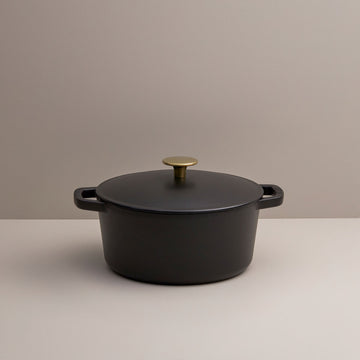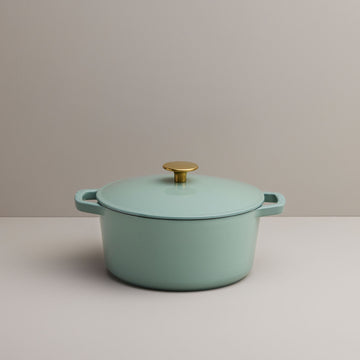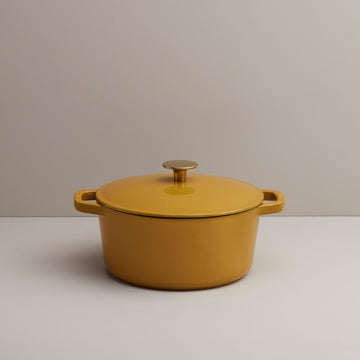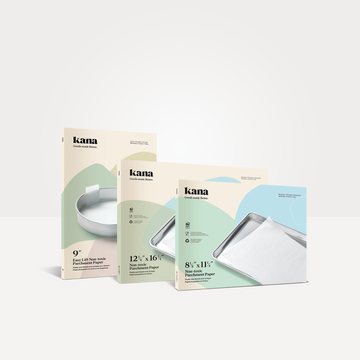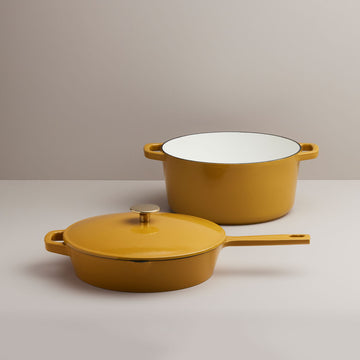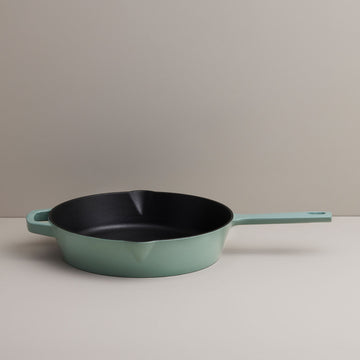
Cut back on food waste and enjoy fresh produce for longer with these useful tips.
2020 has had us all rethinking our cooking and shopping habits, and some of us are avoiding the produce aisle in favor of canned and frozen goods with longer shelf lives. But you don’t need to give up fresh fruits and vegetables out of fear that they won't last. Here are some tips and tricks on how to store produce so you can keep enjoying fresh vegetables for longer.
The Basics:
If your produce comes packaged, take it out of the packaging and wash it right away. Washing cleans off not only germs but mold spores that might threaten the longevity of your vegetables. Allow produce to dry completely before storing to keep mold at bay. You may want to invest in a salad spinner if you eat a lot of leafy greens.

The fridge
Vegetables need a humid environment and should be kept in the crisper drawer in your fridge. If you don’t have a crisper drawer, invest in some produce bags, which recreate the environment. To keep your crisper fresh, line it with a tea towel or paper towel, and change it every time you put in new produce. You may want to consider assigning a “new” and an “old” vegetable drawer, to keep track of what needs to be eaten first.
The MVPs
Potatoes, carrots, onions, cabbage, and winter squash are your MVPs. These winter vegetables can be stored indefinitely when kept in a cool, dry environment away from direct light. Look for squashes without breaks in the skin that could encourage decay.
Carrots and cabbage will last longest in your crisper drawer, but potatoes, onions, and squash can live in a cupboard or on the counter (store potatoes in a paper or heavy cloth bag to prevent them from sprouting). Onions will make potatoes sprout faster, so don’t store them together. Some people say storing the potatoes with an apple keeps them fresh longer.
Carrots and cabbage will last longest in your crisper drawer, but potatoes, onions, and squash can live in a cupboard or on the counter (store potatoes in a paper or heavy cloth bag to prevent them from sprouting). Onions will make potatoes sprout faster, so don’t store them together. Some people say storing the potatoes with an apple keeps them fresh longer.
JOIN THE CLUB
Like this story?
You’ll love our newsletter!
You’ll love our newsletter!

Salad Vegetables
Crisp, juicy salad veggies like peppers, tomatoes, cucumber and celery can last a long time when stored properly. Cucumbers are happy to sit in your crisper drawer, and will stay firm for up to two weeks even once they have been cut.
Peppers should also live in the crisper drawer but have a shorter shelf life than cucumbers. Look for peppers with no cracks or bruises. A whole bell pepper will last about a week in the crisper drawer but will get wrinkly and limp in a few days once it has been cut. Smaller, thinner walled peppers like Scotch Bonnets or Banana peppers will get limp faster than bell peppers. This is a good time to stock up on dried and canned chilli peppers.
Celery will last a long time in the crisper. Keep it whole, tuck in it the drawer, and pull off stalks as necessary. If you run out, celery can be regrown – put the root end in a dish of water on the windowsill and it will soon start to sprout! When it has grown some strong roots you can transfer it into a pot of well-drained soil.
If you have ever put half of a ripe, juicy tomato in the refrigerator and come back the next day to find a grainy, congealed pink mess, you know that tomatoes do not like to live in the fridge. They are hot weather fruits and have the best flavour and texture when kept at room temperature. The best way to store tomatoes is in a basket on the counter; check them daily for any soft spots that might spread. Don’t expect fresh tomatoes to last a long time; they should be enjoyed right away.
Peppers should also live in the crisper drawer but have a shorter shelf life than cucumbers. Look for peppers with no cracks or bruises. A whole bell pepper will last about a week in the crisper drawer but will get wrinkly and limp in a few days once it has been cut. Smaller, thinner walled peppers like Scotch Bonnets or Banana peppers will get limp faster than bell peppers. This is a good time to stock up on dried and canned chilli peppers.
Celery will last a long time in the crisper. Keep it whole, tuck in it the drawer, and pull off stalks as necessary. If you run out, celery can be regrown – put the root end in a dish of water on the windowsill and it will soon start to sprout! When it has grown some strong roots you can transfer it into a pot of well-drained soil.
If you have ever put half of a ripe, juicy tomato in the refrigerator and come back the next day to find a grainy, congealed pink mess, you know that tomatoes do not like to live in the fridge. They are hot weather fruits and have the best flavour and texture when kept at room temperature. The best way to store tomatoes is in a basket on the counter; check them daily for any soft spots that might spread. Don’t expect fresh tomatoes to last a long time; they should be enjoyed right away.

Greens & Herbs
For all your leafy greens, separate the leaves and wash and dry them right away. Once they’re dry, layer them in a crisper drawer or produce bag with paper towels. Delicate lettuces like butter or Boston lettuce should be eaten within a few days. Hardy greens like kale or collards will last longer but keep an eye on it: if the leaves start to yellow, eat it right away. Iceberg lettuce should be treated like cabbage – keep it whole and put it in the crisper drawer.
Fresh herbs should be treated like delicate lettuces but have the shortest shelf life. If you have the space and the sunshine, it’s a great idea to buy or grow herb plants and harvest them as you need them. Green onions are a good way to add freshness and flavour to dishes, and last a while in the crisper. They can even be re-grown, just like celery!
There’s no need to give up fresh produce when you’re not going to the store as often. If you store them right, you can cut back on food waste in your home, and enjoy all the deliciousness of fresh vegetables for longer.
Fresh herbs should be treated like delicate lettuces but have the shortest shelf life. If you have the space and the sunshine, it’s a great idea to buy or grow herb plants and harvest them as you need them. Green onions are a good way to add freshness and flavour to dishes, and last a while in the crisper. They can even be re-grown, just like celery!
There’s no need to give up fresh produce when you’re not going to the store as often. If you store them right, you can cut back on food waste in your home, and enjoy all the deliciousness of fresh vegetables for longer.
Make something delicious
Keep exploring
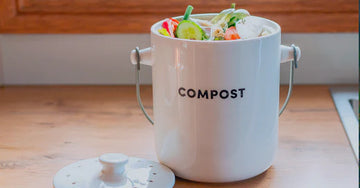
Recyclable, compostable, biodegradable: what's the difference?
Having a good handle on what’s recyclable, compostable, and biodegradable is just one way you can set yourself up to make decisions that are good for you and the planet.
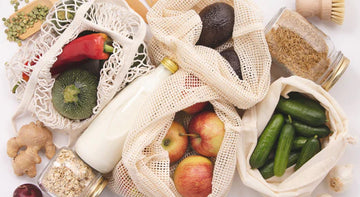
The problem of food waste (and what you can do about it)
There are few things quite as disappointing as seeing perfectly good food go to waste. Turns out it’s not just regrettable for food lovers, it’s a significant strain on the Earth, too.
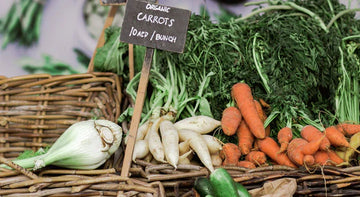
3 very good reasons to start shopping locally
When it comes to buying groceries and other goods from your local businesses, your dollar goes further than you think.
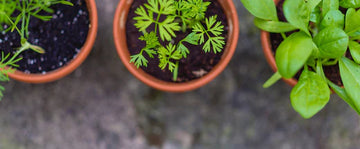
A guide to fresh home-grown herbs all year long
All the information you need to start growing a window box garden filled with fresh herbs for your favorite dishes.
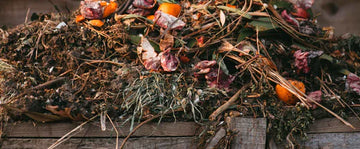
6 top tips on beginning your composting journey
Composting at home has become a great way to fertilize your garden while cutting down what goes into landfills. Here’s a quick guide and six tips to get you started on composting. It’s easier than you think.

How to get your garden ready for spring
By April spring is in full swing and it’s the perfect time of year to start planning your garden. So while the April showers come down, get started with these simple steps that will help put a smile on your face as you watch your garden come together.

Transform your home office into a space you’ll love
When you live and work in the same space you want to make sure that your home office is up to par. Here are a few tips on transforming your home office into a space you’ll be happy in from 9 to 5.
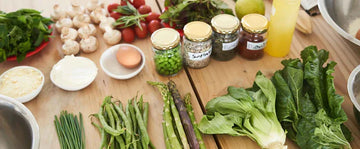
Spending less on meals doesn't have to be hard with these 5 tips
With the rising cost of food it is more important than ever to try and keep your meal budget in check. Using a few simple strategies and a little creativity you can have delicious and budget-friendly meals every day of the week.
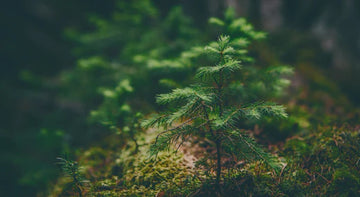
Styled and organized shelving: six simples strategies
Beautifully styled open shelving is a great way to add an interesting design element to almost any space, particularly in the kitchen. If you have a tendency towards cluttered counters and cabinets, we've got a few tips to help you fight that impulse and make those open shelves work for you.

5 successful strategies when cooking for large families
Mealtime doesn’t need to be stressful just because you have a lot of mouths to feed. Here are some simple strategies to decrease the time you spend preparing and cooking meals, and keep everyone (relatively) happy and complaint-free at the dinner table.
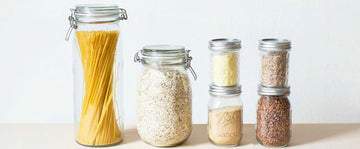
5 simple strategies for an organized pantry
Having an organized pantry has so many benefits. It means significantly less food waste, allows for quicker meal prep and it promotes healthier eating. The good news is that achieving a food storage space that is functional and beautiful is not as difficult as you may think.
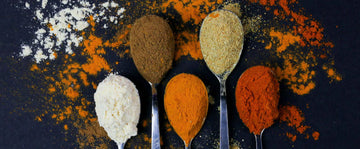
5 simple strategies to tackle your messy spice drawer
Spices can instantly take the taste of whatever you are cooking to a whole new level. So it’s no wonder that we tend to keep a plethora of them on hand at all times. This can make it especially challenging to keep them together and easy to find, but with a few simple adjustments you can easily organize them and set yourself up for success.
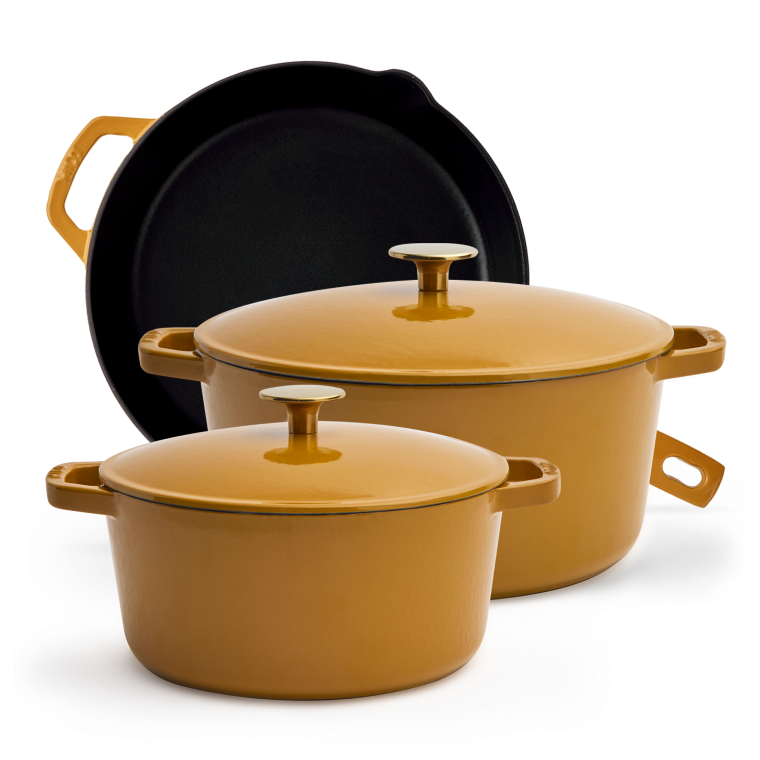
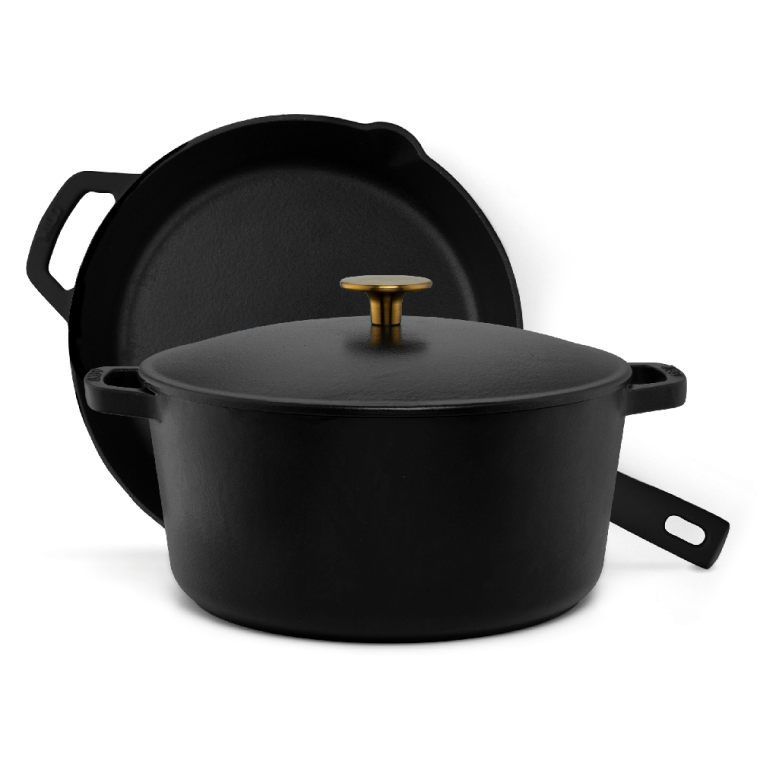
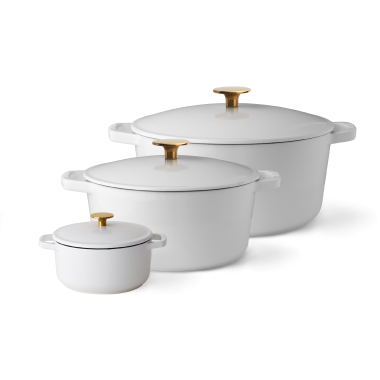
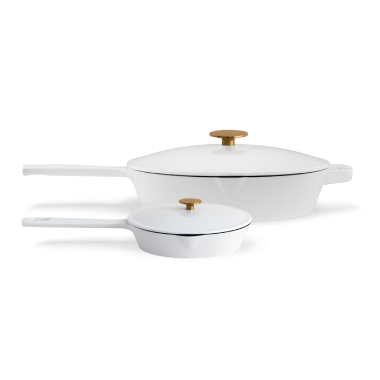


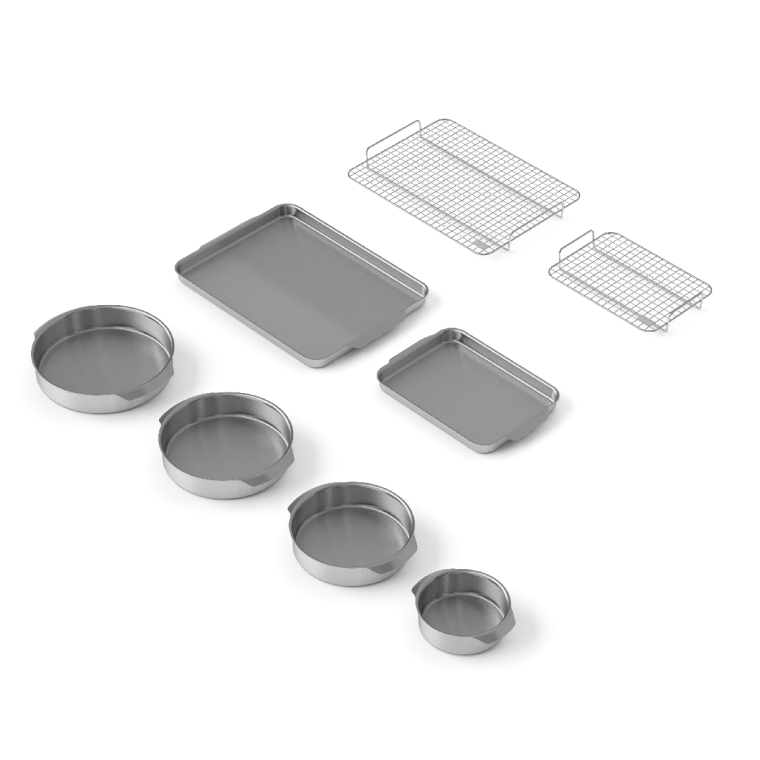
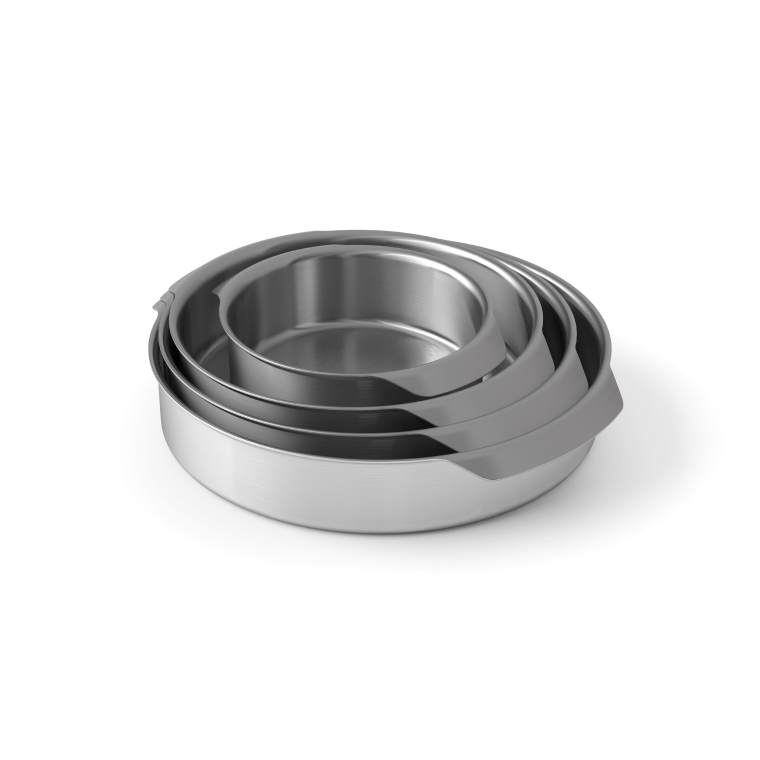
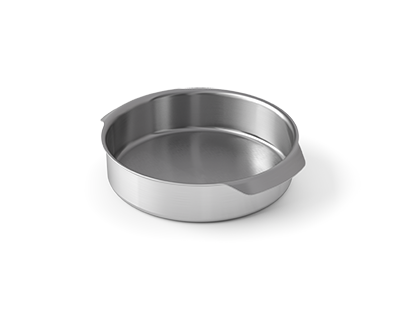







 5.5 Quart Dutch Oven
5.5 Quart Dutch Oven
